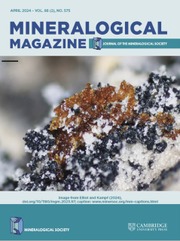Article contents
Data analysis toolkit for long-term, large-scale experiments
Published online by Cambridge University Press: 05 July 2018
Abstract
A new data analysis toolkit which is suitable for the analysis of large-scale, long-term datasets and the phenomenon/anomalies they represent is described. The toolkit aims to expose and quantify scientific information in a number of forms contained within a time-series based dataset in a quantitative and rigorous manner, reducing the subjectivity of observations made, thereby supporting the scientific observer. The features contained within the toolkit include the ability to handle non-uniform datasets, time-series component determination, frequency component determination, feature/event detection and characterization/parameterization of local behaviours. An application is presented of a case study dataset arising from the 'Lasgit' experiment.
Information
- Type
- Research Article
- Information
- Creative Commons
- © [2012] The Mineralogical Society of Great Britain and Ireland. This is an open access article distributed under the terms of the Creative Commons Attribution (CC BY) licence (http://creativecommons.org/licenses/by/4.0/), which permits unrestricted use, distribution, and reproduction in any medium, provided the original work is properly cited.
- Copyright
- Copyright © The Mineralogical Society of Great Britain and Ireland 2012
References
- 4
- Cited by

